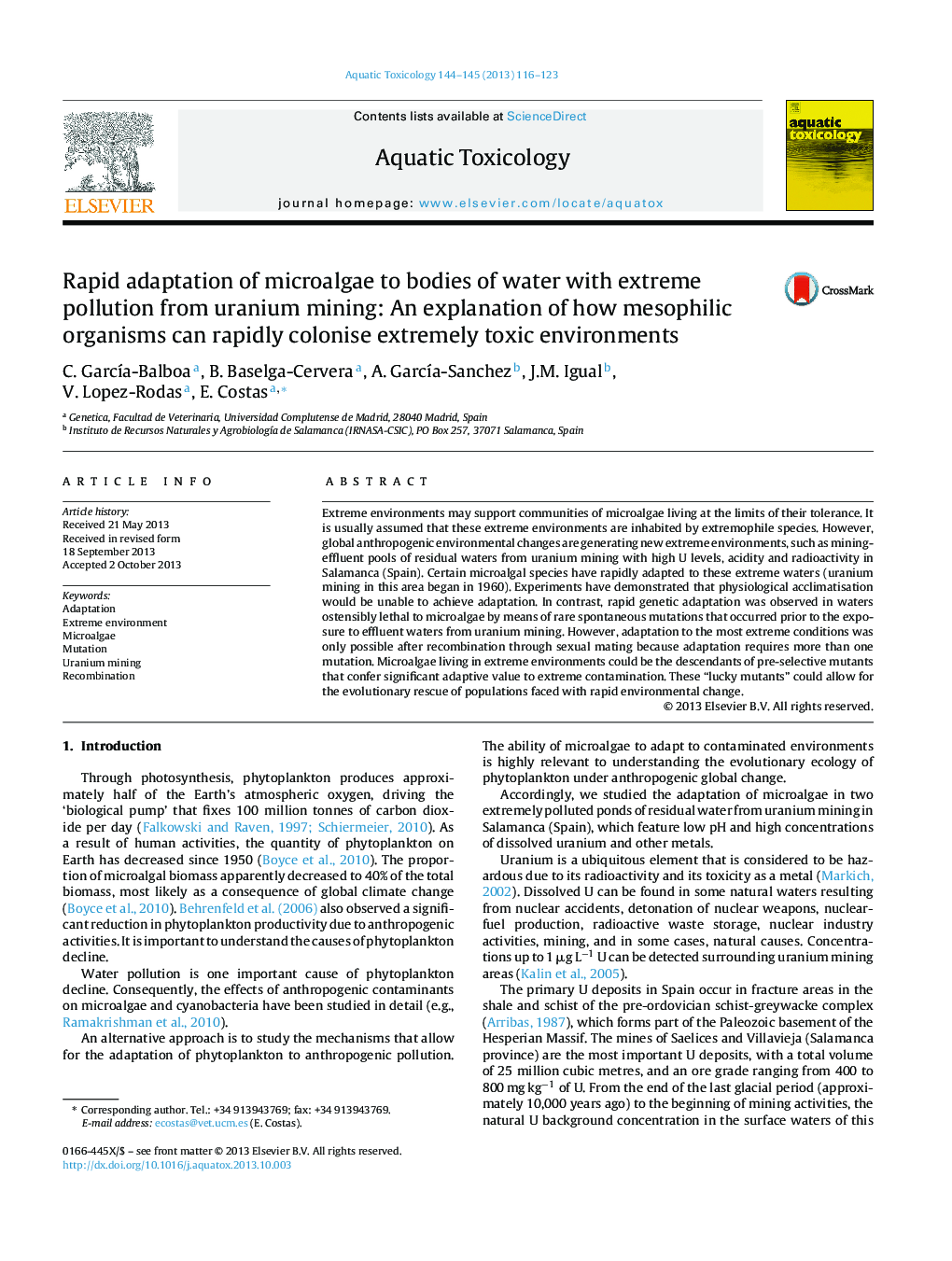| کد مقاله | کد نشریه | سال انتشار | مقاله انگلیسی | نسخه تمام متن |
|---|---|---|---|---|
| 4529342 | 1625960 | 2013 | 8 صفحه PDF | دانلود رایگان |

• Some microalgae species survive to extreme environments in ponds of residual waters from uranium mining.
• Adaptation of microalgae to U arose very fast.
• Spontaneous mutations that confer large adaptive value were able to produce the adaptation to residual waters of U mining.
• Adaptation to more extreme waters of U mining is only possible after the recombination subsequent to sexual mating.
• Resistant microalgae bio-adsorbs uranium to the cell wall and internalises uranium inside the cytoplasm.
Extreme environments may support communities of microalgae living at the limits of their tolerance. It is usually assumed that these extreme environments are inhabited by extremophile species. However, global anthropogenic environmental changes are generating new extreme environments, such as mining-effluent pools of residual waters from uranium mining with high U levels, acidity and radioactivity in Salamanca (Spain). Certain microalgal species have rapidly adapted to these extreme waters (uranium mining in this area began in 1960). Experiments have demonstrated that physiological acclimatisation would be unable to achieve adaptation. In contrast, rapid genetic adaptation was observed in waters ostensibly lethal to microalgae by means of rare spontaneous mutations that occurred prior to the exposure to effluent waters from uranium mining. However, adaptation to the most extreme conditions was only possible after recombination through sexual mating because adaptation requires more than one mutation. Microalgae living in extreme environments could be the descendants of pre-selective mutants that confer significant adaptive value to extreme contamination. These “lucky mutants” could allow for the evolutionary rescue of populations faced with rapid environmental change.
Journal: Aquatic Toxicology - Volumes 144–145, 15 November 2013, Pages 116–123